Economic immorality called out
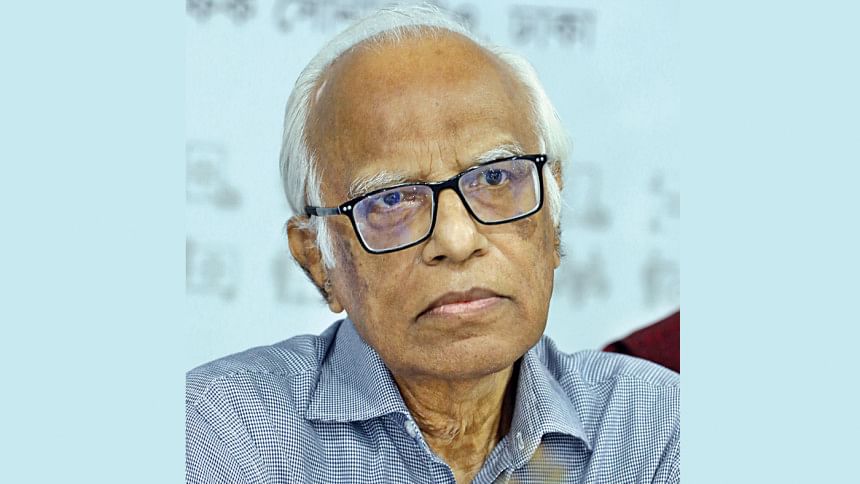
"In an economy devoid of moral values, the resource distribution becomes unequal, economic discipline breaks down, business climate deteriorates and honest taxpayers become disheartened."
Bangladesh is heading towards an economic system devoid of moral values, which is causing a breakdown in financial discipline, spoiling the business climate, and discouraging honest taxpayers, said noted economist Wahiduddin Mahmud.
He was one of the speakers who took part in a discussion on the proposed budget for the fiscal year 2024-25 at a city hotel yesterday.
The Editors' Council and the Newspaper Owners' Association of Bangladesh (Noab) organised the event.
Wahiduddin observed, "We are talking about being a Smart Bangladesh. If smart people have no values, it becomes horrifying.
"How we can restore the values in the economy should be analysed and focused on."
Citizens too have a responsibility, as many engage in corruption to evade taxes or get benefits by bypassing rules and procedures, he added.
Wahiduddin, also a former finance adviser to a caretaker government, said the main source of this economy devoid of values is the political power system. When the power illegally goes to the loyal people and vested groups, it is used for immoral activities.
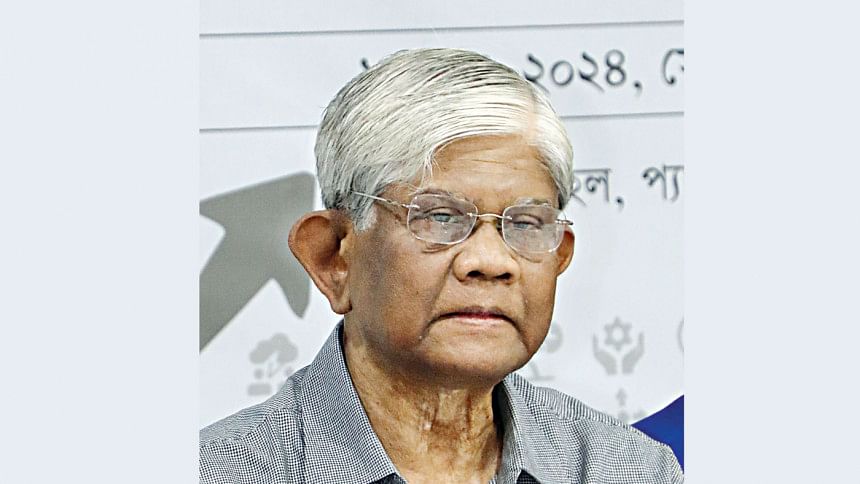
"Already, our banking sector is suffering due to the huge amount of bad loans. Some people are taking out loans but are not repaying them. It seems that the loan default has become a business model."
In the interest of the economy, the government must keep some sectors free from corruption and irregularities, he said.
The administration lacks accountability, and corruption is deeply rooted there, which wastes public funds, said Wahiduddin, also a former professor of economics at Dhaka University.
He said the Bangladesh Financial Intelligence Unit (BFIU) has failed to play its due role in curbing money laundering. "Recently, we have seen that a former government official kept hundreds of crores of taka in banks and then withdrew it too. But nobody was caught."
He said if Tk 10 lakh is transferred via banks, the BFIU notices it and is supposed to detect the source.
"The atmosphere for confidence has not been created. We see unbridled circulation of black money in the economy and capital flight."
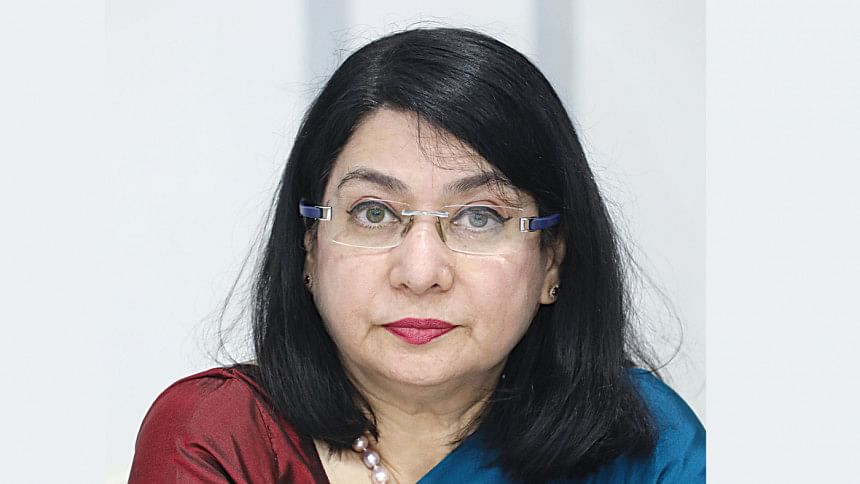
"The banking sector is becoming weaker and weaker. And many depositors complaining that they cannot withdraw their money."
Wahiduddin said when the economic indicators were strong, the irregularities, mismanagement, and waste were covered up. "It [the economy] had the capacity to absorb those. At present, it has no capacity to absorb this mismanagement."
The current economic crisis is not temporary, and mid- and long-term strategies are needed, he warned.
Citing mega projects, the economist said those were built with loans. He said some of them could have been built with equity sharing. "Then, it might have eased the pressure of debt repayment."
Wahiduddin said the economy is facing the challenges of stubborn inflation; erosion of foreign exchange reserves; lower revenue collection; lukewarm growth in remittance and export earnings; capital flight; indiscipline in the banking sector; massive corruption; and waste of public funds.
"In this situation, the budget was as usual … which can be termed a sacrificial lamb that has no significant scope to do the many things that are required."
Due to lower revenue earnings, there is no scope for a budget with high expenditure, which the country requires. Considering the high inflation, the government had to contain the deficit too, he said.
In overall macroeconomic management, some basic weaknesses have been exposed.
He said low revenue collection was a big weakness, but the government has not taken any strong corrective measures.
Another weakness is the huge loans taken from internal and external sources. "If the government continues to borrow, the budget may fall into a debt trap."
Wahiduddin said the banking sector is the most sensitive to the economy. "But it is today left uncontrolled and unprotected.
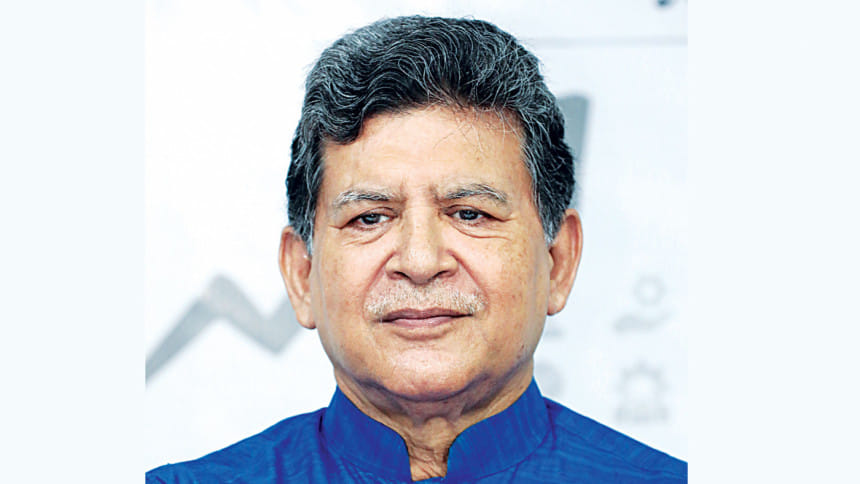
"The budget has been framed following the recommendations of the IMF, the oligarchs, and bureaucrats. It was framed ignoring concerns of the entrepreneurs and other real actors in the economy."
"A massive qualitative change and reforms are necessary to get rid of these weaknesses. The question is whether the government's top level makes the promises and conducts the reforms. It will be clear in the coming days."
Hossain Zillur Rahman, executive chairman of the Power and Participation Research Centre, said, "The budget has been framed following the recommendations of the International Monetary Fund, the oligarchs, and bureaucrats.
"It was framed ignoring the concerns of the hardworking entrepreneurs and other real actors in the economy."
Following the IMF's recommendations, the budget's growth has been contained. It is focused on the preparation for graduation from the LDC group, he said.
The government has not taken any measures to reform the banking and revenue sectors. Instead, it allowed amnesty for legalising undisclosed money.
"This is an unjust step," he said, adding that such a measure was taken to please the oligarchs.
A former adviser to a caretaker government, Zillur said the government did not take steps to improve the business climate.

"The government has to think seriously about the banking sector.. it should prepare a white paper on this sector. The failure of this sector will hold us back... We have destroyed the banking sector."
He said the tax-free income remains unchanged despite high inflationary pressure, and the target to raise more revenues through value-added tax impacts people irrespective of their incomes.
He listed five major challenges confronting the country: unfavourable macroeconomic conditions; the cost-of-living crisis; the joblessness of young people; the unfriendly business climate; and the moral value crisis.
Zillur termed the targets for curbing inflation and raising private investment "unrealistic" as there was no indication how these would be reached.
"If the government cannot reduce inefficient loans for budget implementation, control corruption that has already become institutionalised, and make the bureaucracy service-oriented, the economy will be in a huge crisis in the coming days."
He said an administrative reform commission was necessary. The bureaucrats' attitudes seem colonial, and the people face challenges in getting services from public agencies, he added.
Mohammad Muslim Chowdhury, a former comptroller and auditor general, said there was no effort in cost saving, and operating expenditure eats up the lion's share of the budget.
He too said a commission for administrative reforms was long overdue.
Muslim, also a former finance secretary, said the volume of soured loans would be between Tk 4,00,000 crore and Tk 5,00,000 crore, which is huge considering the size of the budget.
Default loans amounted to Tk 1,82,295 crore at the end of March this year, according to the latest data from the Bangladesh Bank.
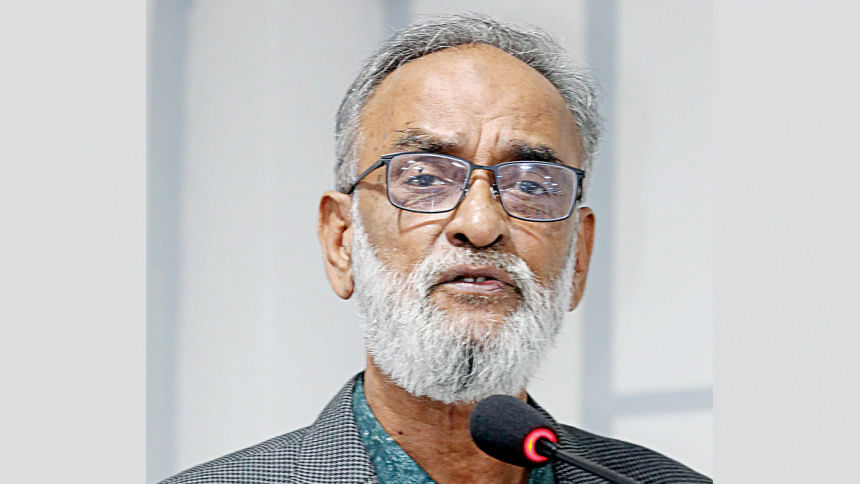
"There is no [government] effort to reduce costs ... An administrative reform commission is long overdue."
Former Bangladesh Bank governor Salehuddin Ahmed said the government should reduce the size of the ADP (annual development programme) by Tk 1,00,000 crore to Tk 1,50,000 crore so that the budget deficit drops massively and so does the need for bank borrowing.
"The operating expenditure should also be reduced. If such bold decisions are made, banks will be able to lend more to the private sector. Otherwise, the government will borrow hugely from banks, squeezing out the private sector and hurting job creation."
He said the government's debt is rising at a high rate, and there could be a situation where it would have to take out loans to repay loans.
"Already, our banking sector is suffering due to the huge amount of non-performing loans. Some people are taking out loans but are not repaying them. It seems the loan default has become a business model."
The former governor said the government changes the tax structure almost every year. There should be a long-term plan so that businesspeople can assume what the tax structure would be.
"It is changing the tax structure at will."
Salehuddin said there was no accountability in public spending.
Ahsan H Mansur, executive director at the Policy Research Institute, said fixing the interest rate to a single digit, keeping the exchange rate the same, and inefficiency in financial management, especially the banking sector, have created the macroeconomic problems.
He expects inflation to come down after a few months if the government can continue the contractionary monetary policy and supportive exchange rate management.
"If the central bank does not intervene in the banking interest rate, the exchange rate will remain at the existing stage. Then, inflation will be tamed."
Ahsan said the budget has some inconsistencies.
For example, the government has targeted to raise private investment to GDP ratio to 27 percent from the existing 23 percent. He questioned how the investment would be financed.
This is because the banking sector is already in a liquidity crunch due to the huge default loans. Moreover, the government will take 76 percent of new deposits, around Tk 1,70,000 crore, to finance its budget deficit.
If the rest is to go to the private sector, investment cannot be raised to the targeted level, he added. "The banking sector is not in a position to lend a huge amount."
He urged the government to publish a white paper on how the banking sector got into the current situation.
Mansur suggested that the private sector borrow from abroad if the exchange rate remains stable for a few months.
"If they take up loans from external sources, they will get financing at a lower rate, and it will boost the foreign exchange reserves."
According to Mansur, the government has not cut its spending in the budget; rather, it only squeezed its growth of spending.
"If it cuts expenditures by a significant amount, the private sector can get financing."
The government spends around 42 percent of its total expenditure on operations, which is a lot higher considering its service quality.
He said the US is run by 11 ministries, but Bangladesh has ministries manifold of that.
"Bangladesh does not need so many ministries, and the government should cut spending on the bureaucracy."
About the huge spending in the power sector, he said the government should renegotiate and revisit the power-related agreements to reduce costs, be it with Adani Power or local companies.
"The government needs to raise revenue by expanding the tax net. Due to the failure of this sector, the government has been forced to make its budget loan-dependent."
With the existing low revenue collections, it cannot be a developed nation, Mansur said, adding that easy government services have to be ensured so that people feel encouraged to pay taxes.
On the newspaper sector, Salma Islam, editor and publisher of the Daily Jugantor, said the industry is facing myriad challenges. "The government should announce this as an industry."
She proposed reducing duties and taxes on the raw materials used in publishing newspapers.
Fahmida Khatun, executive director of the Centre for Policy Dialogue, said, "The banking sector is becoming weaker and weaker. And many depositors complaining that they cannot withdraw their money."
She said the Banking Company Act has been amended to serve the interests of vested quarters and new formulas have been devised to reschedule loans.
Mahfuz Anam, editor and publisher of The Daily Star, AK Azad, publisher of the Samakal, and Dewan Hanif Mahmud, editor of the Bonik Barta, also spoke at the event.

 For all latest news, follow The Daily Star's Google News channel.
For all latest news, follow The Daily Star's Google News channel. 




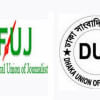


Comments